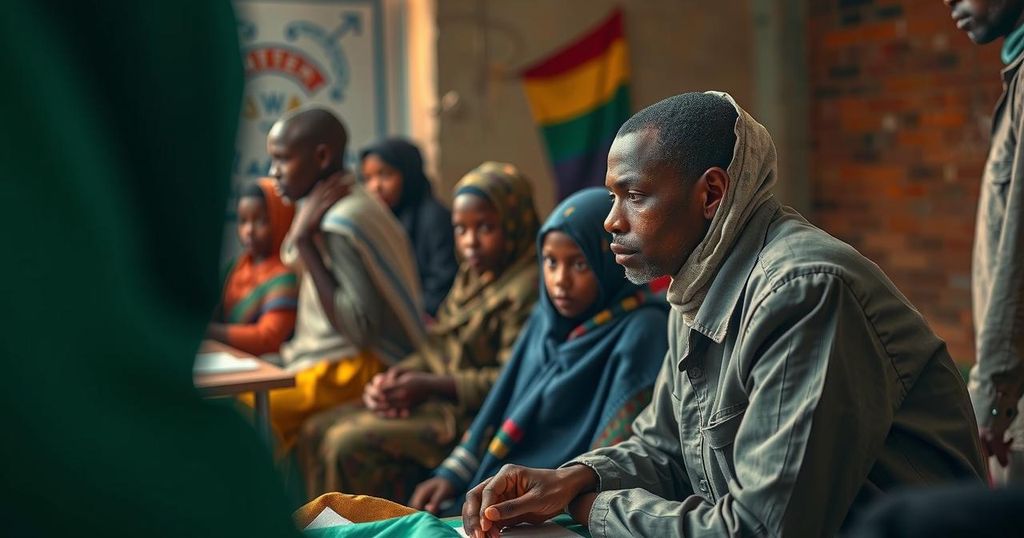Cholera and Dengue Fever Crisis Amid Ongoing Conflict in Sudan
In Sudan, ongoing conflict has triggered a humanitarian crisis characterized by famine, and rising cholera and dengue fever outbreaks. Over 28,000 cholera cases have been reported, with Kassala state severely affected. The healthcare system is collapsing, and the blockade on essential supplies has worsened food insecurity, highlighting an urgent need for humanitarian assistance.
The ongoing conflict in Sudan has severely affected towns and cities, leading to a humanitarian crisis marked by widespread famine, and rising incidences of cholera and dengue fever. The UN Office for the Coordination of Humanitarian Affairs (OCHA) reported over 28,000 cholera cases and 836 fatalities across eleven states from July to October 2023. Infectious disease cases are believed to be underreported, as the healthcare system nears collapse due to infrastructural damage and resource shortages.
Cholera outbreaks have intensified following an exceptionally rainy season that contaminated water supplies, particularly affecting states like Kassala, which has recorded the highest number of cholera cases and deaths. Meanwhile, dengue fever rates are climbing, particularly in Kassala and Khartoum, with thousands reported infected. The Ministry of Health declared a new cholera wave in mid-August, prompting a health response that includes vaccination campaigns targeting approximately 1.4 million citizens in critically affected regions.
The persistent hostilities in North Darfur, particularly in El Fasher, have crippled both humanitarian assistance and essential supplies needed to combat starvation, pushing malnutrition rates further into alarming territory. Non-Governmental Organization Médecins Sans Frontières (MSF) highlighted that malnutrition remains critical, particularly in Zamzam camp, where famine conditions were recorded earlier this year. Displacement due to violence has increased, further straining access to crucial health services.
The healthcare sector is in dire straits, with up to 80% of medical facilities in conflict zones not operational. The World Health Organization (WHO) has reported debilitating attacks on healthcare services, which compromises immunization campaigns and facilitates the spread of preventable diseases. Attacks on medical staff and facilities have become prevalent, exacerbating the humanitarian turmoil that has displaced over 11 million individuals within Sudan and forced millions more to flee to neighboring countries.
The humanitarian crisis in Sudan is a result of severe conflict, which has not only disrupted social order but also precipitated a collapse of the healthcare system. The combination of warfare, disease outbreaks, and food insecurity poses a significant threat to the well-being of civilians. Reports from humanitarian organizations reveal alarming statistics on cholera and dengue fever, highlighting the urgent need for assistance in the affected areas. The conditions created by ongoing fighting impede both the delivery of humanitarian aid and vital medical supplies, worsening the situation for those affected by malnutrition and disease.
The situation in Sudan is critical, with a convergence of famine, cholera, and dengue fever threatening the lives of millions amid a collapsing healthcare system. The humanitarian response is urgently needed to address the rising cases of infectious diseases and provide essential resources to combat malnutrition. Continued conflict hampers these efforts, increasing the vulnerability of an already suffering population. The international community must escalate support and intervention to alleviate the untold suffering of the Sudanese people and restore healthcare services wherever possible.
Original Source: news.un.org




Post Comment